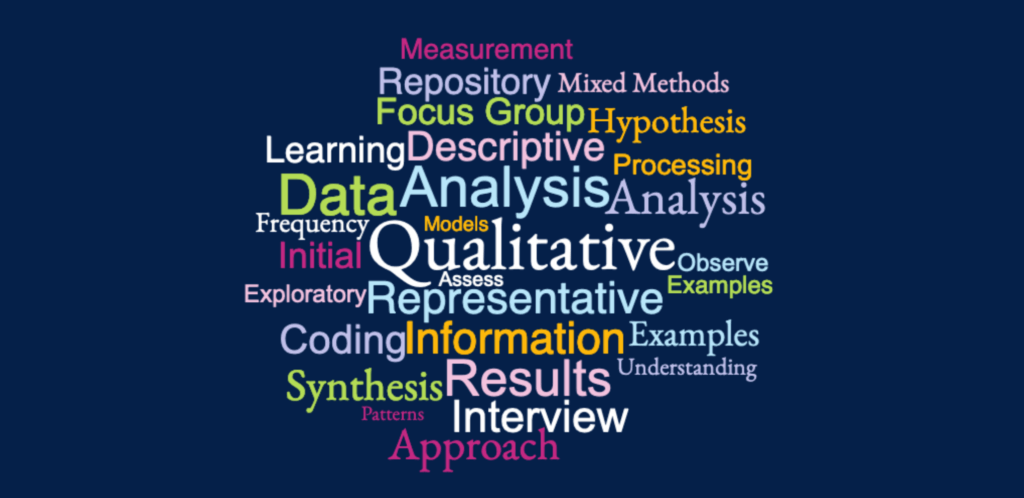We are pleased to announce that, thanks to funding from the UCSF Library, UCSF is now an institutional member of the Qualitative Data Repository. The Qualitative Data Repository (QDR) is a dedicated archive for storing and sharing data (and accompanying documentation) that is generated or collected through qualitative and mixed-method research in the social sciences and related disciplines. UCSF researchers can use QDR to discover qualitative data for secondary research, and to share their own research data to satisfy publisher and funder data sharing requirements, including the new NIH Data Management and Sharing Policy. What does it look like to share qualitative data? Check out these recent UCSF data deposits:
- Harrison, Krista. 2021. “Advance Care Planning in Hospice Organizations: A Qualitative Pilot Study”. Qualitative Data Repository. https://doi.org/10.5064/F6YMWPUX. Palliative Care Research Cooperative QDR-EOLPC . V1 (downloaded 214 times!)
- Saberi, Parya. 2020. “PrEP Optimization Intervention: qualitative interviews with healthcare providers”. Qualitative Data Repository. https://doi.org/10.5064/F6SHNJUG. QDR Main Collection. V1 (downloaded 588 times!)
As institutional members, UCSF researchers can deposit their data in QDR for free by signing up with their UCSF email. The benefits of using QDR include:
- Detailed data curation assistance to ensure that data is fully de-identified, annotated, and ready for sharing
- Tiered levels of data access including the ability to restrict access to sensitive data
- Persistent identifiers to make data discoverable and citable
- Data metrics including views, downloads, and citations to track impact
- Long-term preservation of digital data
- Guidance on de-identifying qualitative data
Data Sharing Resources
Sharing qualitative data takes time and advanced preparation to ensure that patient consent and other controls are in place, and that data has been properly prepared and de-identified. Learn more about planning for data management and sharing with these resources:
- UCSF guide to de-identified data sharing
- Library guide to data management and sharing
- NIH 2023 Data Management and Sharing Policy page
- Library data management services
- Qualitative Research Guide
Data Sharing Repositories at UCSF
Given the rise in data sharing requirements, including the forthcoming NIH Data Management and Sharing Policy, UCSF is investing in repositories that make research data more accessible and transparent. In addition to the Qualitative Data Repository, UCSF is also a member of Vivli, a clinical trials data repository, and Dryad, an open generalist repository. We also provide guidance on selecting other data repositories.
Get Help
Have questions about sharing data or using QDR? Email Data Services Librarian, Ariel Deardorff, at ariel.deardorff@ucsf.edu.

